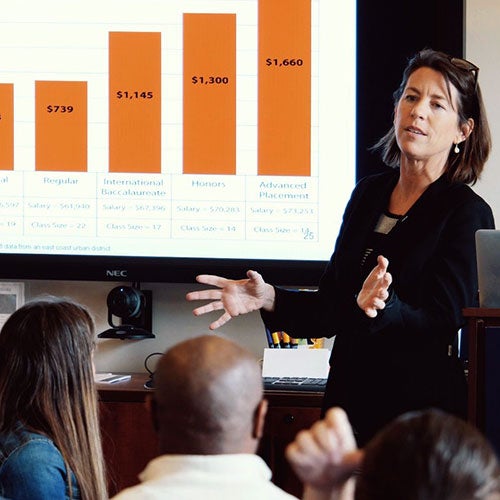Dr. Marguerite Roza
The Certificate in Education Finance is led and taught by Dr. Marguerite Roza, Research Professor at Georgetown University and Director of the Edunomics Lab.
Dr. Roza’s Bio
The one-of-a-kind Certificate in Education Finance (CEF) equips participants with the practical skills they need in strategic fiscal management, policy analysis, and leadership to deploy resources in ways that do the most for students. Read our CEF Flyer.
Register for the Fall 2024 cohort : September 11-12, 2024 in Seattle, WA OR September 24-25 2024 in Washington, DC
Dates of the Fall 2024 cohort don’t work for you? Click here to be notified about future cohorts.

The Certificate in Education Finance is led and taught by Dr. Marguerite Roza, Research Professor at Georgetown University and Director of the Edunomics Lab.
Dr. Roza’s Bio
CEF participants complete the program as part of a cohort. Participants may include, but are not limited to: school principals and leaders, central office leadership, education policymakers, analysts, graduate students, grantmakers, and nonprofit leaders.
View Cohort Profile
Participants report that working with and learning from professionals across a wide swath of roles in the education sector is invaluable in helping them effectively apply their newfound skills.
Explore Participant Experience
The program emphasizes practical skills and application while learning through a combination of interactive classroom instruction, reading, self-reflection, and hands-on practice. Areas of study include allocation and accountability structures, instruction delivery model impacts and implications, effects of ESSA and state policy in local context, productivity analyses, and common (but often ill-understood) cost drivers in education. This is a comprehensive overview course; there are no prerequisites and no advance preparation required. Participants can earn 3.0 CEUs, 36 CPEs, or 30 PDCs.
Learn More about the Program